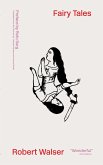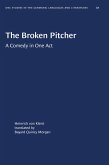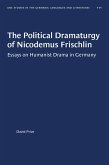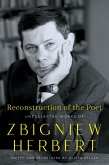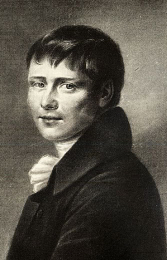Prince Friedrich of Homburg is the indisputable dramatic masterpiece of Heinrich von Kleist (1777-1811), a leading figure, along with Goethe and Schiller, among early German Romantics.
Available until now only in verse translation, it has been newly rendered for the American stage by Diana Stone Peters and Frederick G. Peters.
A work of profound psychological insight, Prince Friedrich of Homburg probes with passionate intensity questions fundamental to civilized behavior. Prince Friedrich, the hero of the historic battle of Fehrbellin (1675) against the invading Swedes, receives not laurels for his victory but the sentence of death for disobeying orders in the field. Faced with certain execution, his mood swings from abject terror to high-minded exultation as first he challenges, and then accepts, the rule of law and subservience to the state. The action moves relentlessly in the near-frenzied pace characteristic of Kleist. Intended as a paean to a Prussia triumphant in the Napoleonic wars. the play was, ironically, censured and never produced in Kleist's lifetime. In our own day, Prince Friedrich of Homburg has been both denounced as a protofascist work and lauded as a supreme metaphysical disquisition. Whatever the merits of such intellectualization, it remains one of the most moving and performable plays available for the modern stage.
Available until now only in verse translation, it has been newly rendered for the American stage by Diana Stone Peters and Frederick G. Peters.
A work of profound psychological insight, Prince Friedrich of Homburg probes with passionate intensity questions fundamental to civilized behavior. Prince Friedrich, the hero of the historic battle of Fehrbellin (1675) against the invading Swedes, receives not laurels for his victory but the sentence of death for disobeying orders in the field. Faced with certain execution, his mood swings from abject terror to high-minded exultation as first he challenges, and then accepts, the rule of law and subservience to the state. The action moves relentlessly in the near-frenzied pace characteristic of Kleist. Intended as a paean to a Prussia triumphant in the Napoleonic wars. the play was, ironically, censured and never produced in Kleist's lifetime. In our own day, Prince Friedrich of Homburg has been both denounced as a protofascist work and lauded as a supreme metaphysical disquisition. Whatever the merits of such intellectualization, it remains one of the most moving and performable plays available for the modern stage.
Dieser Download kann aus rechtlichen Gründen nur mit Rechnungsadresse in A, D ausgeliefert werden.



